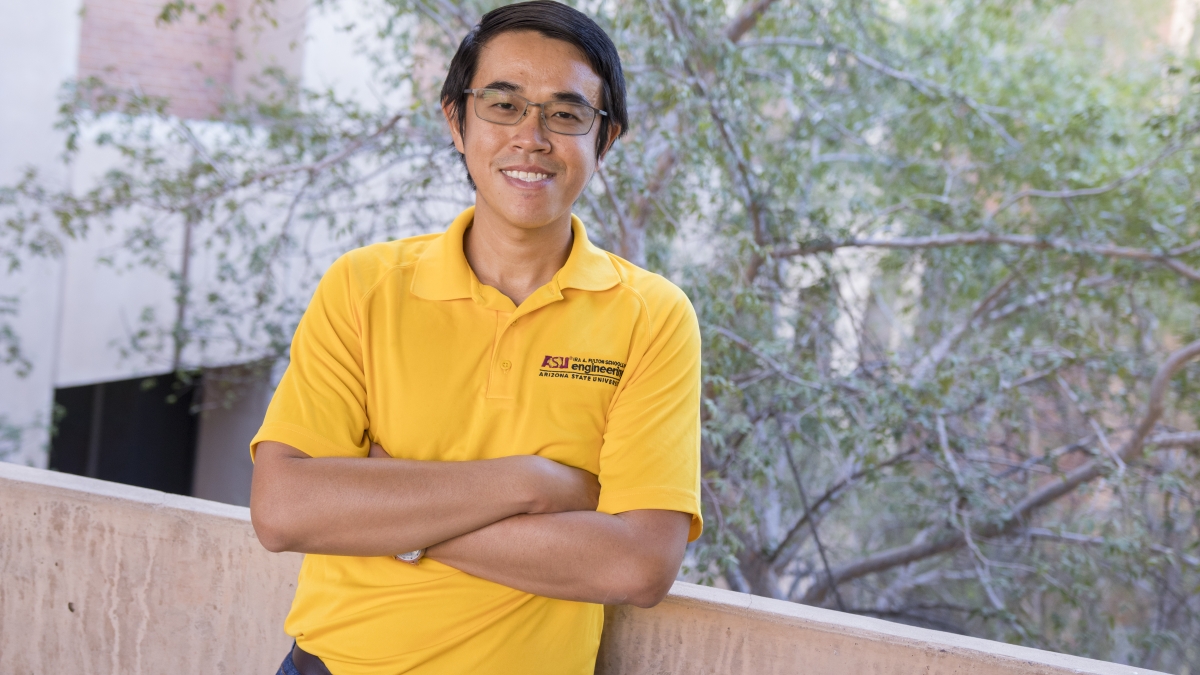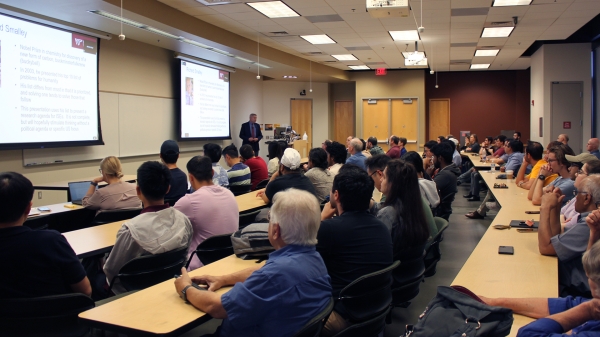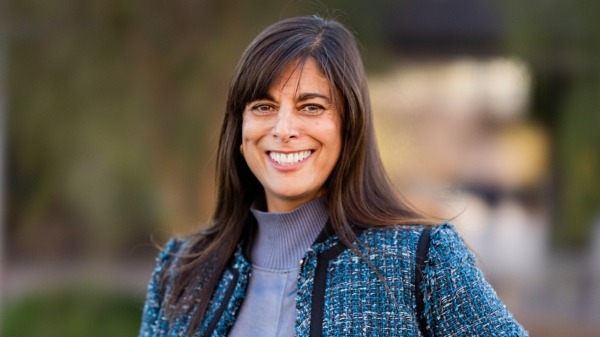Research of swarm behavior leads to DARPA Young Faculty award

Sze Zheng Yong's research of the intents of controlled autonomous swarms recently earned him a DARPA Young Faculty Award. Photo by Marco-Alexis Chaira/ASU
A lifelong interest in automation and how things work on their own has lead to a prestigious award to help protect national defenses for one Arizona State University faculty member.
Sze Zheng Yong, an assistant professor of aerospace and mechanical engineering at ASU’s Ira A. Fulton Schools of Engineering, has spent his career studying the complex behaviors and interactions within and between various types of autonomous and cyberphysical systems.
“My fascination is with how things are automated and can function without manual supervision,” said Yong.
Yong is an expert in system dynamics and control as well as robotics. His research in control and estimation of complex systems with hybrid dynamics recently earned him the prestigious DARPA Young Faculty Award for his research project “Identification and Estimation of Swarm Intent via Partitions of System Dynamics.”
While autonomous swarms, such as groups of drones, can be used for several applications, Yong’s project will not be about controlling them. Instead, he will investigate understanding the intention of autonomous swarms controlled by some other party, such as an enemy.
The element of uncertainty surrounding the malicious agents’ swarm activities hinders current efforts to model them, and the ability to develop mitigating strategies to maintain a strategic advantage and avoid surprise.
In order to understand the behavior of the swarms, the use of classical machine learning methods is no longer sufficient. Classical machine learning methods typically emphasize prediction accuracy over understanding what the obtained models represent.
“Since understanding is the main emphasis for this project, classical machine learning alone will not provide this,” said Yong.
Yong’s DARPA project will develop new computational foundations for identification and estimation (i.e., classification and prediction) of swarm intents. Swarm intents differ based on the mission and the objective, and swarm formation differs based on the desired outcome.
He identifies the uniqueness of his proposal as a reason it was selected for this award.
“I think it was chosen because the proposed ideas are rather different from conventional approaches, and the to-be-developed techniques will generally be applicable to a wide array of dynamic systems beyond swarm systems,” he said. “Moreover, the swarm intent understanding problem has many potential defense applications.”
Yong credits Jamie Winterton, director of strategy for ASU’s Global Security Initiative, for guiding him with his proposal and providing feedback via the DARPA Working Group.
The DARPA Young Faculty Award will enable Yong to develop efficient algorithms to understand complex systems and create novel functionalities and features for autonomous and cyberphysical systems, including making them safer and more secure. His students will benefit as well.
“The funding will go a long way to support the training and mentoring of doctoral students,” Yong said. “They will become the next generation’s innovators, engineers and educators.”
Yong was one of three ASU faculty members to receive a DARPA Young Faculty Award this year. The other awards went to Umit Ogras, an assistant professor of electrical and computer engineering in the Fulton Schools, and Mahyar Eftekhar, an assistant professor of supply chain management in the W. P. Carey School of Business.
More Science and technology

Famed systems engineer inspires ASU to tackle global problems
“Providing great talent with great opportunity can make a great difference.” Such was a key part of the message delivered by G.…

The science behind chronic stress
Stress comes in many shapes and sizes. There’s the everyday stress of preparing for a final exam or being stuck in traffic. And…

ASU planetary scientist to be inducted into the National Academy of Sciences
The National Academy of Sciences is inducting School of Earth and Space Exploration Director Meenakshi Wadhwa into the 2023 class…